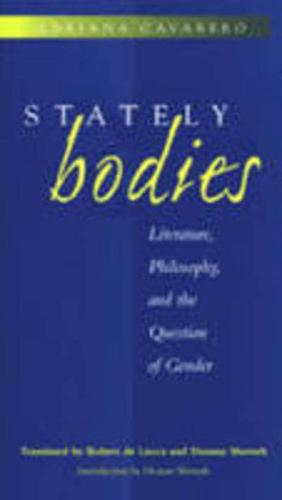Publisher's Synopsis
Stately Bodies explores the curious prevalence of bodily metaphors in conceptions of noncorporeal institutions: the state, the law, and politics itself. The book builds on work from Adriana Cavarero's well-received study, In Spite of Plato: A Feminist Rewriting of Ancient Philosophy. In that work Cavarero -as political theorist, philosopher, classicist, and close reader- examines literary and philosophical texts from Greek antiquity to modern to reveal the paradox that characterizes notions of the "body politic" in Western political philosophy.
She examines bodily metaphor in political discourse and in fictional depictions of politics, including Sophocles' Antigone, Plato's Timaeus, Livy, John of Salisbury, Shakespeare's Hamlet, and Hobbes' Leviathan. An appendix explores two texts by women that disrupt these notions: Maria Zambrano's Tomb of Antigone and Ingeborg Bachmann's Undine Goes.
Cavarero exposes the problematic nature of the mind/body dualism that has been essential in Western thought. Her insight that the expelled, depoliticized body is a female one becomes an instrument for decoding many paradoxical tropes of the political body. For instance, Cavarero revisits Antigone as the tragedy in which a body that is displaced, bleeding, and matrilinear allows the construction of a political order where misogynous rationality rules. Throughout the book, Cavarero argues that women have been cast by male thinkers into the realm of the corporeal as nonpolitical, and also suggests that this nonpolitical position is also a source of knowledge and power, that politics is a masculine pursuit that should not be admired or envied.










